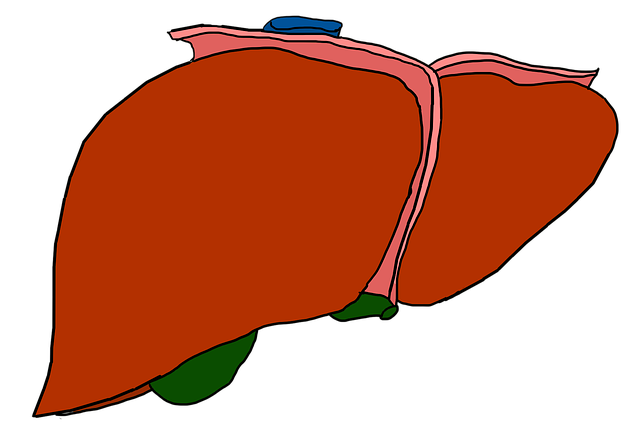 Did you know that gallbladder removal surgery is one of the most common surgeries performed in the United States? Every year hundreds of thousands of patients have their gallbladders removed. What’s up with that? Clearly, gallbladders are not designed to suddenly crap out and go bad, and yet our doctors believe this is happening. The general attitude is that gallbladders are quite unnecessary and that we are probably better off without them since they seem to go bad so frequently.
Did you know that gallbladder removal surgery is one of the most common surgeries performed in the United States? Every year hundreds of thousands of patients have their gallbladders removed. What’s up with that? Clearly, gallbladders are not designed to suddenly crap out and go bad, and yet our doctors believe this is happening. The general attitude is that gallbladders are quite unnecessary and that we are probably better off without them since they seem to go bad so frequently.
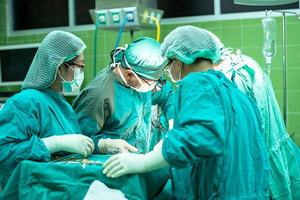 In an uncomplicated case, the patient is in and out of the surgery center on the same day and usually goes directly home. The doctor and surgery center are seven to fifteen thousand dollars richer for 1 to 2 hours of work and the patient is relieved of the burden of a troublesome organ. If the gallbladder were truly unnecessary, this would likely be the end of the story. But the body is far too efficient to carry around unnecessary parts. Any part of you that is not necessary and used regularly is broken down and its parts reused elsewhere. That is why I constantly remind my patients of the use it or lose it rule in the body. So no, the body does not have spare parts laying around, The gallbladder is necessary in the same way your left leg is necessary. Can you live without it? Yes. Will your life be the same without it? No.
In an uncomplicated case, the patient is in and out of the surgery center on the same day and usually goes directly home. The doctor and surgery center are seven to fifteen thousand dollars richer for 1 to 2 hours of work and the patient is relieved of the burden of a troublesome organ. If the gallbladder were truly unnecessary, this would likely be the end of the story. But the body is far too efficient to carry around unnecessary parts. Any part of you that is not necessary and used regularly is broken down and its parts reused elsewhere. That is why I constantly remind my patients of the use it or lose it rule in the body. So no, the body does not have spare parts laying around, The gallbladder is necessary in the same way your left leg is necessary. Can you live without it? Yes. Will your life be the same without it? No.
 So why is the gallbladder important? What does it do anyway? In health class, we are told the gallbladder stores bile from the liver and concentrates it. Okay, why do we care? What is bile for anyway? Bile has two main purposes. Bile is the main way your body flushes poisons and cholesterol out and bile acts as a detergent to break up the grease and fats you have eaten. It is the second function that makes the gallbladder important. Straight bile is a very weak detergent so the gallbladder concentrates it and stores it up waiting for a load of fat from the burger and fries you ate at lunch to make it past the stomach to where the gallbladder squirts the concentrated bile into the first foot of the small intestine called the duodenum. I guess bile is like Dawn dish washing liquid – it cuts the grease. It does this by emulsifying it into tiny droplets that the fat digesting enzymes can work on effectively. Simply put, you need bile to properly digest the fat in your diet.
So why is the gallbladder important? What does it do anyway? In health class, we are told the gallbladder stores bile from the liver and concentrates it. Okay, why do we care? What is bile for anyway? Bile has two main purposes. Bile is the main way your body flushes poisons and cholesterol out and bile acts as a detergent to break up the grease and fats you have eaten. It is the second function that makes the gallbladder important. Straight bile is a very weak detergent so the gallbladder concentrates it and stores it up waiting for a load of fat from the burger and fries you ate at lunch to make it past the stomach to where the gallbladder squirts the concentrated bile into the first foot of the small intestine called the duodenum. I guess bile is like Dawn dish washing liquid – it cuts the grease. It does this by emulsifying it into tiny droplets that the fat digesting enzymes can work on effectively. Simply put, you need bile to properly digest the fat in your diet.
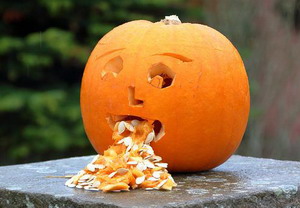 Whoa! Does that mean that if we cut out our gallbladder we will stop digesting fat and can then lose weight? I hear hopeful sighs out there. Actually, weight loss after gallbladder surgery is quite common, but not for the reason you are thinking. Without the gallbladder helping you digest fat, any amount of fat makes you nauseous and gives you terrible diarrhea. As you might guess, this will cause temporary weight loss. After a few weeks, your system will adapt by growing different bacteria in your bowel to feed on all that fat and it then enters your system from the large bowel. This is where a big problem arises. Mixed in with the fat in your food are the fat soluble vitamins – A, D, E, and K. Without the concentrated bile from a working gallbladder mixing with your food directly after your stomach, your absorption of these vitamins is decreased significantly. Certain minerals also need bile to be absorbed sufficiently, including calcium and magnesium. Additionally, the essential omega 3 fats and many fat soluble antioxidants need bile to be absorbed. Bottom line is that without a gallbladder you lose the ability to absorb a lot of your necessary nutrients.
Whoa! Does that mean that if we cut out our gallbladder we will stop digesting fat and can then lose weight? I hear hopeful sighs out there. Actually, weight loss after gallbladder surgery is quite common, but not for the reason you are thinking. Without the gallbladder helping you digest fat, any amount of fat makes you nauseous and gives you terrible diarrhea. As you might guess, this will cause temporary weight loss. After a few weeks, your system will adapt by growing different bacteria in your bowel to feed on all that fat and it then enters your system from the large bowel. This is where a big problem arises. Mixed in with the fat in your food are the fat soluble vitamins – A, D, E, and K. Without the concentrated bile from a working gallbladder mixing with your food directly after your stomach, your absorption of these vitamins is decreased significantly. Certain minerals also need bile to be absorbed sufficiently, including calcium and magnesium. Additionally, the essential omega 3 fats and many fat soluble antioxidants need bile to be absorbed. Bottom line is that without a gallbladder you lose the ability to absorb a lot of your necessary nutrients.
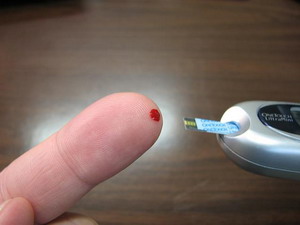 The gallbladder is also critical for controlling the production of cholesterol in the liver. Another sidelight I discovered while researching for this article is that once you have had a gallbladder removal you are much more likely to suffer from blood sugar problems, metabolic syndrome, and diabetes.
The gallbladder is also critical for controlling the production of cholesterol in the liver. Another sidelight I discovered while researching for this article is that once you have had a gallbladder removal you are much more likely to suffer from blood sugar problems, metabolic syndrome, and diabetes.
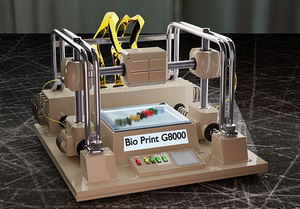 Well, that sounds terrible! What can we do about that? Until medicine is able to form new gallbladders in some sort of organ printing machine, our only choice is to take bile tablets with our meals that have fat in them. That concentrated bile we need can be harvested from cows and put into tablet form. Ellen uses one called Cholacol by Standard Process. It was an attempt at a complicated gallbladder surgery that ultimately caused her to have half her liver removed many years ago. Not all gallbladder surgeries go as planned. Scar tissue had formed around her gallbladder due to all the inflammation which pulled the bile duct from the liver way out of place. When the surgeon went in to remove the gallbladder from the side, he ended up cutting through her bile duct. It is too small to repair, so it simply drained bile into her abdomen for months. Bile is very irritating to the tissues there and it gradually destroyed half of her liver.
Well, that sounds terrible! What can we do about that? Until medicine is able to form new gallbladders in some sort of organ printing machine, our only choice is to take bile tablets with our meals that have fat in them. That concentrated bile we need can be harvested from cows and put into tablet form. Ellen uses one called Cholacol by Standard Process. It was an attempt at a complicated gallbladder surgery that ultimately caused her to have half her liver removed many years ago. Not all gallbladder surgeries go as planned. Scar tissue had formed around her gallbladder due to all the inflammation which pulled the bile duct from the liver way out of place. When the surgeon went in to remove the gallbladder from the side, he ended up cutting through her bile duct. It is too small to repair, so it simply drained bile into her abdomen for months. Bile is very irritating to the tissues there and it gradually destroyed half of her liver.
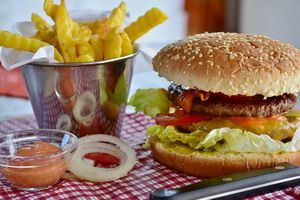 So how do you know if your gallbladder is acting up and do you really need to remove it? Hopefully, I have communicated that your gallbladder is not really unnecessary and you want to keep it if at all possible. The early signs of gallbladder trouble are difficulty digesting fats. You might see this as flecks of fat appearing in your stool and your stools will tend to float and smell worse than usual. Even earlier signs are just a bit of nausea when you eat something with a lot of fat in it. Trigger pain spots for gallbladder issues are the front of the right shoulder and between the shoulder blades. If you are experiencing gallstone issues, you may have sharp pain along the bottom front of the ribs on the right.
So how do you know if your gallbladder is acting up and do you really need to remove it? Hopefully, I have communicated that your gallbladder is not really unnecessary and you want to keep it if at all possible. The early signs of gallbladder trouble are difficulty digesting fats. You might see this as flecks of fat appearing in your stool and your stools will tend to float and smell worse than usual. Even earlier signs are just a bit of nausea when you eat something with a lot of fat in it. Trigger pain spots for gallbladder issues are the front of the right shoulder and between the shoulder blades. If you are experiencing gallstone issues, you may have sharp pain along the bottom front of the ribs on the right.
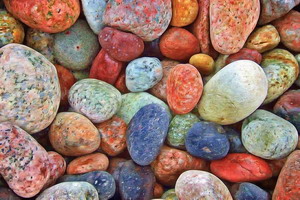 If you have an exam by your doctor and he/she orders a special x-ray of the gallbladder with a dye to visualize any stones present, you may find your gallbladder is diseased. A recent study of patients who had a primary diagnosis of gallbladder disease but did not elect to have surgery showed that in 70% of them, the discomfort resolved on its own, and had no further problems over the following 4 years. My brother has been managing his gallbladder full of stones for many years. He finds that as long as he avoids egg white he has no problems. But the minute he ingests egg white, he will have a gallbladder attack. So, be aware that certain foods will trigger gallbladder problems. Sometimes there is no choice about the need for surgery. If the gallbladder has gone septic and is threatening to burst then you need surgery right away. If it is not removed then you end up with systemic abdominal infection and death usually results. Most gallbladders are not so dramatic, and slowly lose function over time.
If you have an exam by your doctor and he/she orders a special x-ray of the gallbladder with a dye to visualize any stones present, you may find your gallbladder is diseased. A recent study of patients who had a primary diagnosis of gallbladder disease but did not elect to have surgery showed that in 70% of them, the discomfort resolved on its own, and had no further problems over the following 4 years. My brother has been managing his gallbladder full of stones for many years. He finds that as long as he avoids egg white he has no problems. But the minute he ingests egg white, he will have a gallbladder attack. So, be aware that certain foods will trigger gallbladder problems. Sometimes there is no choice about the need for surgery. If the gallbladder has gone septic and is threatening to burst then you need surgery right away. If it is not removed then you end up with systemic abdominal infection and death usually results. Most gallbladders are not so dramatic, and slowly lose function over time.
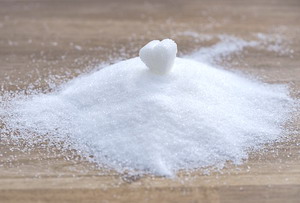 So what causes gallbladder problems anyway? In a word – sugar. There are several pathways that can go wrong resulting in gallbladder dysfunction, but they all start with excess sugar consumption. The liver may get congested due to fatty liver (which comes from too much sugar or the sugar derivative called alcohol) which will make the cholesterol concentration too high for the gallbladder to deal with. The breakdown product of your red blood cells, called bilirubin, may get too concentrated in the liver for the same reason as cholesterol concentration. Even certain hormonal problems linking back to too much sugar can trigger gallbladder issues. Basically, too much sugar is the direct cause of most gallbladder problems. So, if you are expecting any gallbladder issues in the future, get off the sugar completely. (Completely means no more than 4 teaspoons of sugar a day.)
So what causes gallbladder problems anyway? In a word – sugar. There are several pathways that can go wrong resulting in gallbladder dysfunction, but they all start with excess sugar consumption. The liver may get congested due to fatty liver (which comes from too much sugar or the sugar derivative called alcohol) which will make the cholesterol concentration too high for the gallbladder to deal with. The breakdown product of your red blood cells, called bilirubin, may get too concentrated in the liver for the same reason as cholesterol concentration. Even certain hormonal problems linking back to too much sugar can trigger gallbladder issues. Basically, too much sugar is the direct cause of most gallbladder problems. So, if you are expecting any gallbladder issues in the future, get off the sugar completely. (Completely means no more than 4 teaspoons of sugar a day.)
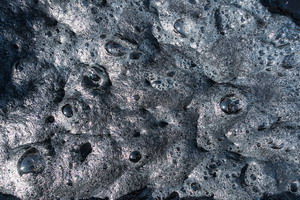 The basic picture here is that if the liver is producing bile that is deficient or too concentrated and thick (bile sludge) it gums up the gallbladder and creates problems. Other issues that result in bile deficiency are things like taking statin drugs (since bile is made from cholesterol), high cortisol (stress), high estrogen levels (like being on the pill), high insulin levels (diabetes), gastric bypass surgery, and even being on a low fat diet (since fat is what triggers the release of bile). So there are many potential causes for gallbladder problems and gall stones. This list can give you an idea of what to avoid in your life to preserve your gallbladder or even potentially reverse gallbladder problems.
The basic picture here is that if the liver is producing bile that is deficient or too concentrated and thick (bile sludge) it gums up the gallbladder and creates problems. Other issues that result in bile deficiency are things like taking statin drugs (since bile is made from cholesterol), high cortisol (stress), high estrogen levels (like being on the pill), high insulin levels (diabetes), gastric bypass surgery, and even being on a low fat diet (since fat is what triggers the release of bile). So there are many potential causes for gallbladder problems and gall stones. This list can give you an idea of what to avoid in your life to preserve your gallbladder or even potentially reverse gallbladder problems.
 That pretty much covers the simple understanding of the gallbladder for typical patient needs. Save your gallbladder, you need it. Don’t eat sugar is the main message here. If you have already lost your gallbladder then you must compensate by taking ox bile tablets with any meal that has fats in it. You will probably need to supplement your diet with extra A, D, E, and K as well as various minerals. Take these supplements with a meal that has fat in it and take the ox bile along with it.
That pretty much covers the simple understanding of the gallbladder for typical patient needs. Save your gallbladder, you need it. Don’t eat sugar is the main message here. If you have already lost your gallbladder then you must compensate by taking ox bile tablets with any meal that has fats in it. You will probably need to supplement your diet with extra A, D, E, and K as well as various minerals. Take these supplements with a meal that has fat in it and take the ox bile along with it.
Take care,
David
